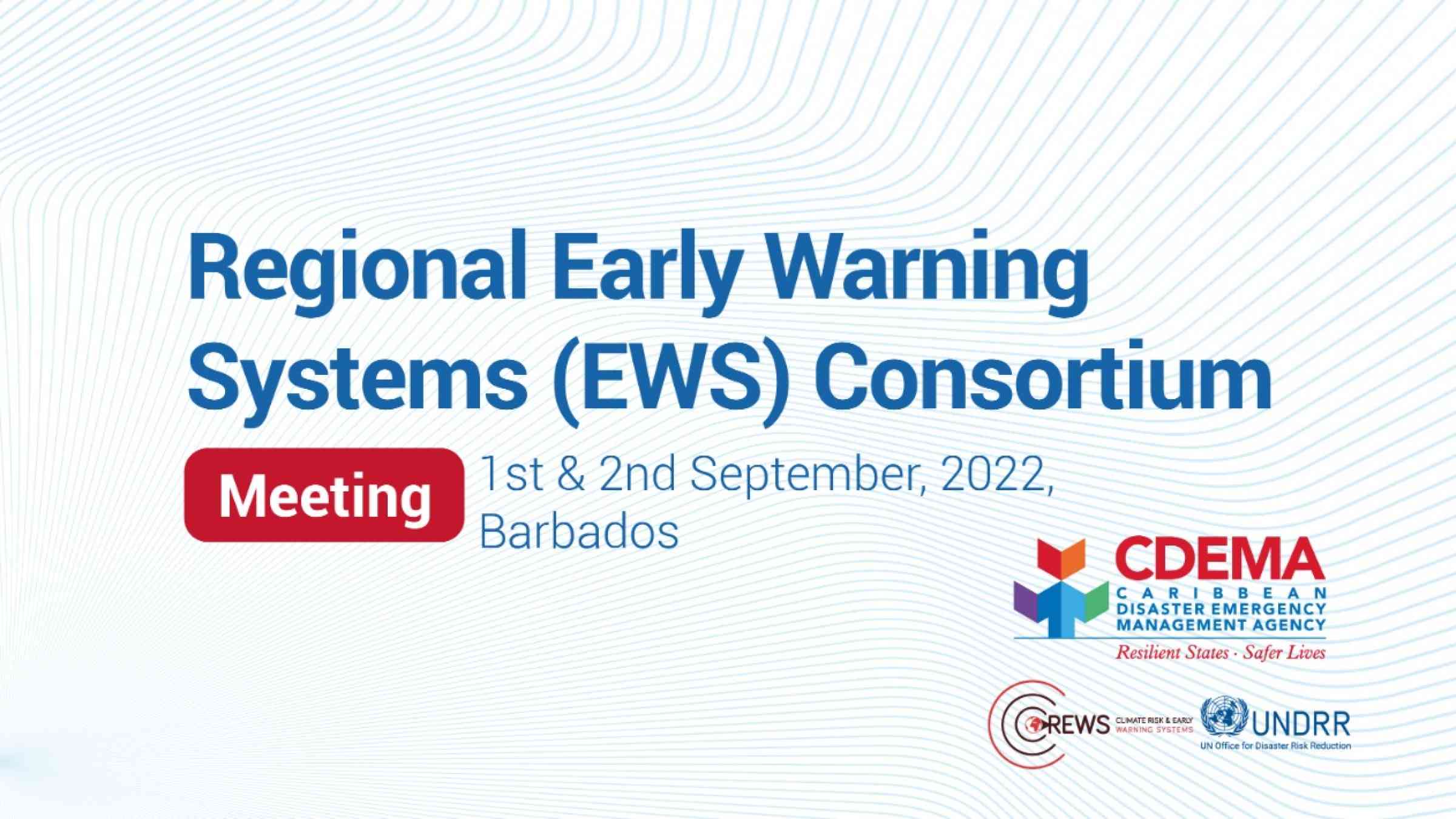Regional Early Warning Systems (EWS) Consortium Meeting

- English
The Caribbean is one of the most vulnerable regions in the world. The region is faced with both natural and technological hazards. The Regional Strategy on Comprehensive Disaster Management (CDM) 2014-2024, like the Sendai Framework 2015-2030 and the Sustainable Development Goals identify strengthened early warning systems as a critical component of building the resilience to hazards and by extension contributing to sustainable development. The phenomena of global climate change demands that early warning systems are strengthened. This requirement for strengthening is reinforced by the reality that disasters result in disproportionate impacts on the poor and vulnerable and demands that gender and vulnerable persons are also integrated into our approaches.
Building on a series of meetings between 2017 and 2019 the Regional Early Warning Systems Consortium was formally established at the 11th Caribbean Conference on Comprehensive Disaster Management, December 5, 2019. Multi-hazard early warning systems are a key programming priority of the CDM Strategy 2014-2024 and the Sendai Framework for Disaster Risk Reduction 2015-2030. It is recognized that the ability to warn of one or more hazards increases the efficiency and consistency of warnings through coordinated and compatible mechanisms and capacities, involving multiple disciplines for updated and accurate hazards identification and monitoring for multiple hazards.
Over the last two years, as we navigated the challenges of the COVID-19 environment, members of the Consortium have convened on an adhoc basis to provide guidance and feedback, inter alia, on relevant project and programme deliverables which advance early warning. As such we are desirous of taking the opportunity to reconvene the REWS Consortium in a more formal manner.
CDEMA as the Chair and Multi-Hazard Early Warning System Coordinator is pleased to partner with the United Nations Office for Disaster Risk Reduction (UNDRR) Regional Office for the Americas and the Caribbean, to convene this meeting of the REWS Consortium which will held on September 1-2, 2022 in Bridgetown, Barbados as a face to face meeting.
Within CDEMA Participating States, early warning systems exist for the traditional cyclonic systems and within recent times they have expanded to include droughts and other rain bearing weather phenomena. EWS also exist for other categories of hazards including those which are seismically generated (e.g. for tsunamis and volcanos) and health related. Existing regional arrangements that support national systems also exist such as the Early Warning Information Systems Across Climate Timescales (EWISACTs). The REWSC will seek to complement those existing arrangements and build efficiencies through stronger coordination to address multiple hazards.
Globally it is accepted that effective Early Warning Systems (EWS) shall reflect the following four components: Risk Knowledge; Monitoring and Warning Service, Dissemination and Communication and Response Capability. This framework promotes greater efficiency in EWS through the harmonization of components. The extent of these harmonization opportunities requires greater exploration within the Caribbean context.
The role of the Regional Early Warning Systems Consortium is to serve as a strategic and advisory body for the advancement and strengthened coordination of Early Warning Systems within the Caribbean Region taking into consideration the realities of a changing climate. Whilst it is recognized that early warning systems can apply to both natural and technological hazards, the initial focus of the EWS Consortium will be on natural hazards.
Among other topics, the meeting will be an occasion to discuss about:
1) the Strategic Roadmap for Advancing MHIEWS in the Caribbean 2020-2030;
2) the updated version of the MHEWS Checklist;
3) the existing capacities for MHEWS in the region;
4) synergies among REWSC members' programmes and activities; and opportunities for collaboration.
This meeting is supported by the Climate Risk Early Warning Systems initiative, in the framework of its Caribbean project.
Editors' recommendations
Explore further
Is this page useful?
Yes No Report an issue on this pageThank you. If you have 2 minutes, we would benefit from additional feedback (link opens in a new window).